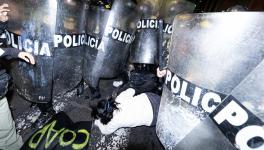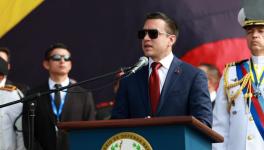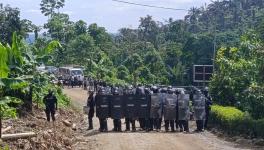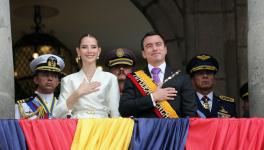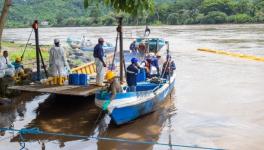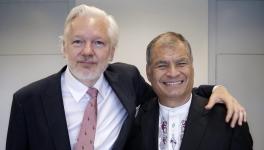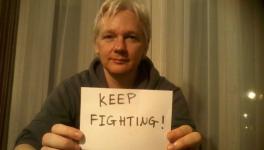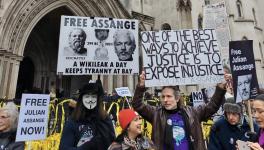Ecuador Bows Before US interests, Continues Suppression of Julian Assange’s Internet Rights
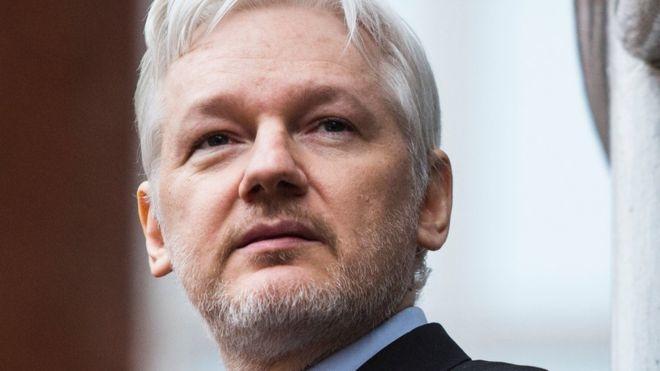
Image Courtesy : BBC
Wikileaks’ founder Julian Assange’s access to the internet continues to remain suspended, and no date has been set for resumption, Ecuador’s Foreign Minister Maria Fernandez Espinosa said recently.
Assange has been stranded - without access to natural light or fresh air - in a tiny office room in the Ecuadorian embassy for five and a half years now. If he steps out, he is likely to be immediately arrested by the British police and then possibly extradited to the US, where he will be tried on charges of espionage for publishing secret documents that revealed American war crimes in Iraq and Afghanistan - charges that can potentially carry death penalty if convicted.
Access to internet, which was his only connection to the outside world amid what is almost solitary confinement, was suspended by the Ecuadorian government on March 28, ostensibly because Assange criticized the arrest of a Catalan separatist politician. This, according to the government, violated the agreement he had with it of not “intervening in internal politics of third-party countries”.
Contesting the legality of this action, International Human Rights lawyer and a member Assange’s legal team, Renata Avila, told Newsclick, “Assange is now an Ecuadorian citizen. Ecuador has the duty to protect him and to apply the Ecuadorian constitution to him. That is the current status. Only a judicial order from Ecuador could legally limit his speech, not a Presidential order or a Ministerial order.”
Much has changed since the time Ecuador granted Assange citizenship in January. In mid-2017, Lenin Moreno was elected president of Ecuador with a mandate to carry forward the legacy of Rafael Correa, who defied the US and granted Assange asylum, in addition to implementing a wide range of policies for the welfare of the people.
Moreno’s government even took the widely welcomed step of granting Assange citizenship. At that time, Foreign Minister Espinosa had said, “What naturalization does is provide the asylum seeker another layer of protection.” The move came after Britain rejected Ecuador’s request to grant Assange diplomatic status, which would have provided him immunity from arrest in England, allowing him to leave the embassy and the country to Ecuador.
However, over the last few months, Lenin Moreno has done a volte face, both on the domestic and international fronts, shifting closer to US interests in the region.
Early in April, diverse social movements took to the streets in Ecuador protesting against Moreno’s betrayal of Correa’s legacy. Later that month, Ecuador signed a security agreement with the US, which, critics allege, opens the door to re-establishing US military presence in the region.
In this backdrop, the continuing stifling of Assange’s ability to communicate with the outside world is being seen as yet another ‘goodwill’ gesture to the US.
Get the latest reports & analysis with people's perspective on Protests, movements & deep analytical videos, discussions of the current affairs in your Telegram app. Subscribe to NewsClick's Telegram channel & get Real-Time updates on stories, as they get published on our website.











